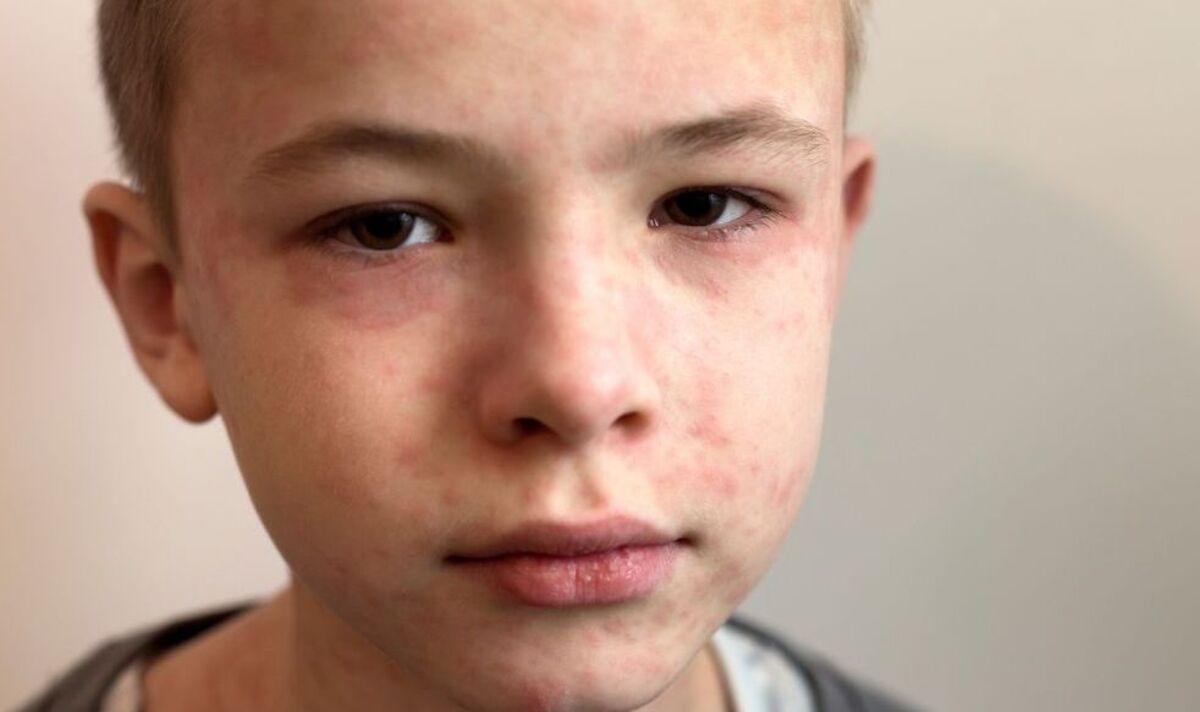The UK Health Security Agency (UKHSA) has issued a stark warning amid an unprecedented rise in cases of measles.
Worst hit so far is the West Midlands, where more than 300 probable cases have been recorded since October.
The city of Birmingham itself is particularly affected, with around 80 percent of cases found there.
Measles is a highly contagious infection that often starts with cold-like symptoms.
The distinctive rash can appear a few days later. While these symptoms are not usually something to worry about, if measles spreads to other parts of the body it can be dangerous.
It can also lead to pneumonia, meningitis, blindness and seizures (fits), with babies and people with weakened immune systems most at risk.
The UKHSA warning comes as its chief executive Dame Jenny Harries is in Birmingham today, urging people to take up the MMR (measles, mumps and rubella) vaccine.
To date, there have been 216 confirmed cases and 103 probable cases of measles in the West Midlands since October 1, 2023.
Around 80 percent of cases have been seen in Birmingham, with about 10 percent in Coventry, with the majority being in children aged under 10.
The UKHSA has now declared a national incident due to the rise in cases.
A risk assessment published by the agency last July, warned of the potential for such outbreaks.
Dame Jenny explained that unless urgent action is taken we are likely to see the measles virus spreading rapidly in other areas with low MMR vaccine uptake.
“Colleagues across the West Midlands have worked tirelessly to try to control the outbreak, but with vaccine uptake in some communities so low, there is now a very real risk of seeing the virus spread in other towns and cities,” she said.
“Children who get measles can be very poorly and some will suffer life changing complications.
“The best way for parents to protect their children from measles is the MMR vaccine. Two doses of the MMR vaccine give lifelong protection and it’s never too late to catch up.
“Immediate action is needed to boost MMR uptake across communities where vaccine uptake is low.”
Via the NHS, the MMR vaccine is usually given to children at the age of one and again at three years and four months old.
You can still ask your GP surgery for the MMR vaccine if your child has missed either of these 2 doses.
Dame Jenny added: “We know from the pandemic that the communities themselves, and those providing services within them, will have the knowledge to best support local families to understand the risks of measles, to learn more about the vaccines that can protect them and to enable innovative vaccine delivery approaches.
“We need a long-term concerted effort to protect individuals and to prevent large measles outbreaks.”









